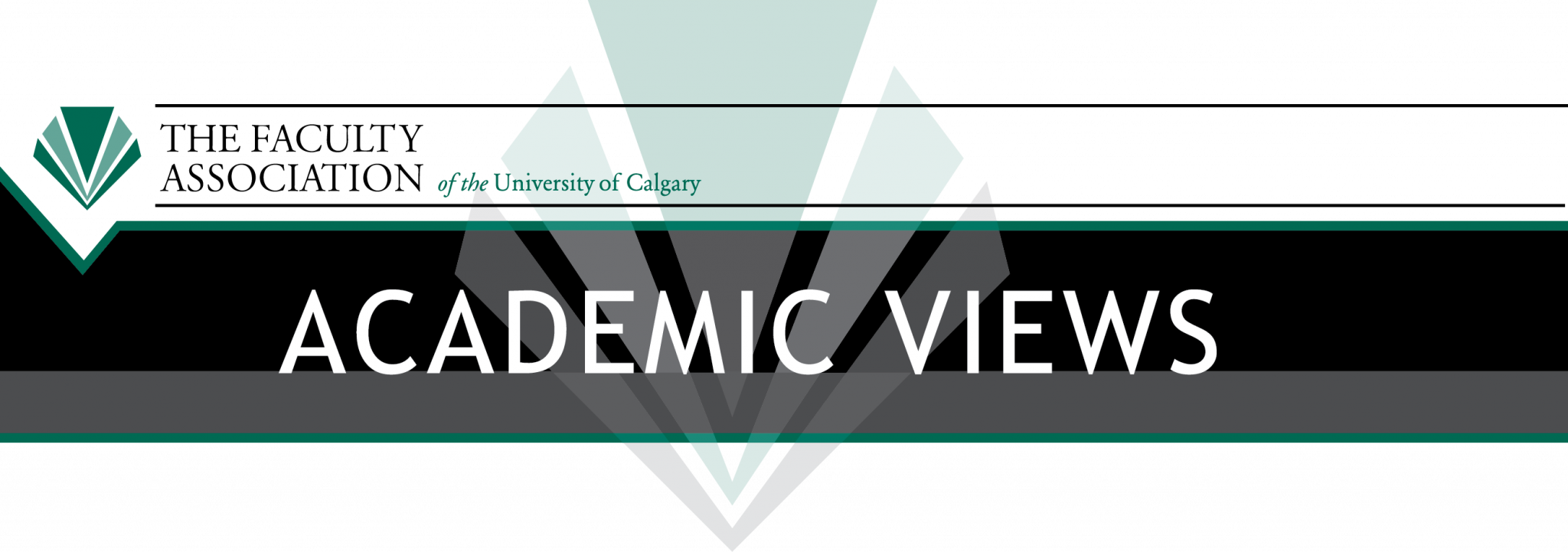
Dear Colleagues,
The Fall 2021 term will be remembered for a long time. It has been a period fraught with uncertainty, beginning with what is now recognized as a premature provincial decision to declare the pandemic over, the resulting opportunity for faculty members to change their teaching modality, evolving rules for campus, and ending with the cancellation of some final exams and the announcement of the movement of January courses online. We heard from many of you on these issues and have always made sure to share your concerns with the Administration. At times the Administration has characterized this as ‘consultation’, but, while we appreciate the opportunity to raise these concerns with them, our preference would be for ongoing participation and direct involvement in the decision-making process.
Unfortunately, the uncertainty continues. With the emergence of the Omicron variant, the format of the full Winter 2022 term remains undetermined as I write this article. What is clear is that there will be no opportunity for individual faculty members to choose the modality of class delivery. The Faculty Association’s position on this issue, and in particular during a pandemic with the situation almost constantly in flux, is that members should be able to choose the modality of course delivery unless there are specific programmatic requirements. The Administration, and indeed, some of our members, are opposed to this position, but it is something that we will continue to pursue.
We were disappointed that decisions on modality made by some of the Senior Leadership Team in October at times seemed to assume the pandemic was over and explicitly ruled out changes based on pandemic concerns. As a result, some of our members, for reasons relating to personal and family health, have requested accommodations and some of these requests continue to work their way (far too slowly!) through the system. We have supported, and will continue to support, those of you who wish to submit such requests. There is no time limit on these requests and indeed requests for leaves based on medical reasons can be submitted at any point. Our staff remains available to assist members with this process.
I appreciate the hard work you did this term and know that many of you who taught online would have very much preferred to teach in person. There is no doubt that this is the preference of the vast majority of our members, provided it can be done free of health or safety risks. We all look forward to a time when teaching in person again becomes the norm and is not accompanied by stress and anxiety.
At the moment, very few Winter courses are scheduled for full online delivery and we do not know what decision the Administration will make at the end of January. Many of you have reached out to us with your concerns and we continue to share these directly with the Provost and in meetings with the Academic Crisis Management Task Force. We have all been told that “teams are meeting daily to assess the situation,” but you should be aware that we are not represented on these teams and we do not know how they’re composed. We hope the Administration will become more transparent about how they arrive at the decisions they announce.
We have heard from many of you that students say they want more online options and the limited number approved to date seemed, in our view, unlikely to meet demand, even before the Omicron variant and the move to online teaching in January. The limited number of online courses is a policy choice made by the Administration, and it shouldn’t be up to academic staff to individually provide ‘work arounds’ to lessen the consequences of this decision at the price of increasing their own stress and workload. The Provost has indicated that the university website states “individual exceptions to the published course modalities are not possible and it is unreasonable to request exceptions to the course modality directly from a course instructor.” We have been told that Associate Deans have been asked to monitor this situation.
While our staff and office are forced to focus on matters relating to COVID, other activities continue and we will provide more information on these in the new year. You might have heard that we have an active grievance relating to USRIs and their use in the merit, tenure and promotion processes, as well as the need to resolve issues surrounding equity, diversity and inclusion before any decisions are made concerning questionnaires. Bargaining on a new Collective Agreement continues, albeit slowed by the personnel changes on the Administration front and the ever-changing COVID-19 crisis. Our bargaining team is working hard on your behalf and your department representatives are briefed on this at our regular meetings.
I personally want to thank the members of the Faculty Association Executive and Board for their commitment to ensuring that the concerns of our membership are heard and discussed. I also appreciate the feedback and advice provided by our department representatives. Finally, I want to acknowledge and express my appreciation for the hard work and dedication of our staff. They work long hours and are committed to obtaining the best possible results for our members. It has been a privilege to work with all of these people.
David Stewart, President
